T.O.F.U. #11 | The Vegan Prescription by Amanda Lily
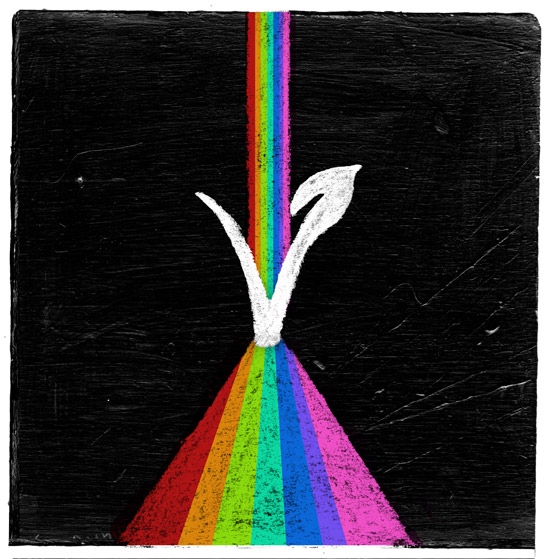
Along with showcasing the table of contents earlier, I thought it might be good to post one of the articles that will be published in issue eleven. So, what better one to pick than the piece that opens the issue itself?
The Vegan Prescription
Results May Vary
Words by Amanda SVS Lily | Illustration by Matt Gauck
With the rise in popularity of the term “plant- basedâ€, it is becoming more evident than ever that the word “veganâ€1 is not just about what a person eats. Someone can follow a plant-based diet, and not value the same principles that another person who identifies as a vegan does. Being vegan is not a diet. Veganism is about lifestyle choices. For vegans, our daily decision making is about more than what is on our plates. Thus, the actual mental and physical health of each person who identifies as a vegan, as well as our diet, can vary greatly.
Similar to many of you, although I am a vegan, I am not a superhero. Depending on which side of the ever-popular, yet painfully superficial argument many vegans are presented with by people who are not vegan, I am likely to be considered one of two things: (a) I am vegan and thus must never get sick. I can walk through walls and shoot laser beams out of my eyes when someone argues with me or threatens to put dairy milk in my tea. Or, conversely: (b) Since I am vegan, I am most certainly deficient in something (likely protein), and my bones would break in an instant should I accept an invitation to arm wrestle a baby. Not to mention my terribly righteous and pushy attitude. Both of these stereotypes of vegans, as is the case with all stereotypes, are distorted. They rely heavily on generalizations about a spectrum of people who are incredibly diverse.
Unfortunately, many of those promoting veganism also use exaggerations and generalizations. In their case, the argument presented is often that someone who is vegan is healthy beyond a doubt. If they are not experiencing high levels of health, or looking a certain way, it is because they ate something wrong or slipped up in some way. Due to the appeal of this promise, we often see people who promote veganism this way treated as gurus or health experts, whether they have expertise in the field or not, and regardless of who they put down to push their message. Thanks to this popular narrow view, the diversity of the vegan population, including the array of health problems experienced before or after becoming vegan, is rarely addressed.
If the Problem Persists…
Outside of diet, which can be complicated enough, there are many other factors that also contribute to the state of one’s health. On a personal level, things such as genetics can play a crucial role in determining one’s physical state. Along with this, life in our modern world can be hectic and overwhelming. Not everyone spends their days studying nutrition, fitness, and other health factors. Even those that do may lack the required knowledge to critically analyze the things they read, which can have drastic consequences. Not everyone can control their environment, whether that’s at work, home, or when being social. On a larger scale, many people are responsible for meeting the needs of others and have little time for themselves. Not to mention the various systemic issues that can negatively affect a person’s environment and access to quality food and other resources. Thus, socially marginalized and underprivileged populations are more likely to experience additional obstacles in accessing what they need to be healthy. In addition to these more immediate factors, any two people may have also had very different lifestyles prior to becoming vegan and thus have varying factors affecting their present state of health. Despite all of these differences, they can still fit the general description of being vegan.
Overall, it is incredibly ignorant to expect that any person, vegan or not, can go through life without any health problems. Not only that, the severity of these health problems can vary greatly, and can be physical or mental. Health problems happen. The way they are identified and dealt with determines what happens next.
Diagnosis: Vegan
From my personal experience, I have noticed that people who are vegan tend to question their diet as the probable cause of any health problems, despite the fact that the same may be experienced by someone who is omnivorous. Additionally, people who eat omnivorous diets will perpetuate this way of thinking, due, at least partly, to the cultural entrenchment of their diet whereby their questions and judgments seem to stem from a lack of knowledge in nutrition and health sciences. Luckily, some things can be done to provide peace of mind -a state that can be hard to achieve with the pervasive questioning and judgment by the individual and those around them. Regular blood analysis and personal health analysis would be examples of such activities.
For those who adopt veganism, hoping it will act as a cure-all, being unaware of the health problems that people who are vegan can experience means they could wind up disappointed. Similar to using sex to promote veganism, those who do not see the health results they are promised may choose to stop being vegan. These people may even become very vocal against it, and we all know the media loves a good “ex-vegan gets sick†story.
As a community, acknowledging the fact that vegans can be sick or become sick can also help those who are currently facing health problems. Openly talking about the issues, and being supportive of those who do discuss such things, can go a long way in terms of improving a person’s well-being, as well as creating a more inclusive movement that can only grow stronger as we discover how to help each other.
Take With Food and a Clear Conscience
Going vegan is not a medical prescription. It is a choice made for philosophical reasons. For me, becoming vegan and adopting a plant-based diet, among other factors, worked to improve my health. However, I am aware that becoming vegan may not produce the same results for everyone.
Sure, by becoming a vegan you may experience many improvements in your health. If, however, you do experience any health problems as a vegan, does that mean you failed as a vegan? No. Again, veganism is a choice based on ethics. There is no way a personal health problem can be because someone “wasn’t vegan enoughâ€, just as many health problems are not simply “because they were veganâ€. The truth is that health problems are a normal occurrence whether you are vegan or not. Other factors must be considered when attempting to keep in good health including stress, genes, chosen food intake, mental health, and more. None of these factors are addressed directly by veganism, and this is one of the many reasons why you should talk with a medical professional (not a website or popular blogger), if you are experiencing any health issues.
The sooner we learn to accept that veganism is not a perfect solution, the sooner we can create a stronger community through inclusion and open discussion. Throughout this issue, numerous people have offered their voices to be a part of that conversation, and I hope you’ll learn something from their stories. Regardless of why we’re all vegan, embracing our differences and acknowledging our struggles is a win-win for both ourselves and the animals.
If you would like to see this article, along with the others in T.O.F.U. #11, published in print, please consider subscribing to the magazine through Patreon. For as little as $1/issue, you can help make the magazine a physical thing!
Amanda lily is a vegan Health coach and Personal trainer that offers coaching to those who want to adopt a kinder diet, but struggle with the logistical and social challenges of fitting it into their daily lives. Through workshops and virtual coaching with one-on-one and group sessions, she helps people all over North America find a way to bring their choices more in-line with their values.
w: amandalily.com
Matt Gauck is a freelance illustrator and screen printer living in Portland, Oregon. He spends most of his time drawing, riding his bike, and watching awful horror movies. He is also good at handstands.
w: mattgauck.com | ig: @veganpatches
Footnotes
1. According to the Vegan society, veganism is defined as:
A philosophy and way of living which seeks to exclude -as far as is possible and practicable – all forms of exploitation of, and cruelty to, animals for food, clothing or any other purpose; and by extension, promotes the development and use of animal-free alternatives for the benefit to humans, animals and the environment. in dietary terms it denotes the practice of dispensing with all products derived wholly or partly from animals.
Editor’s Note: If you’re interested in reading this issue, it’s now available in the online store to download for whatever price you want to pay, including free.

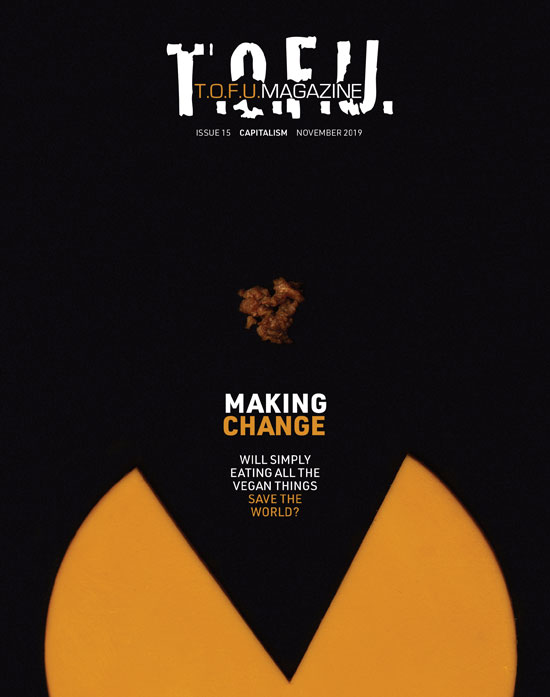
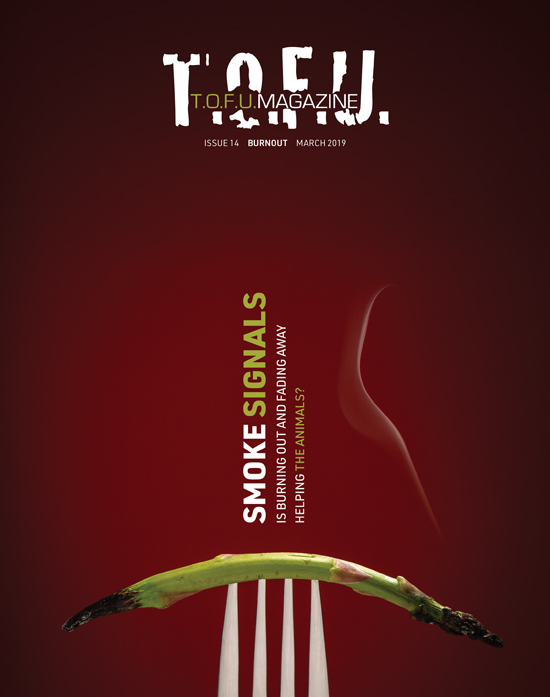
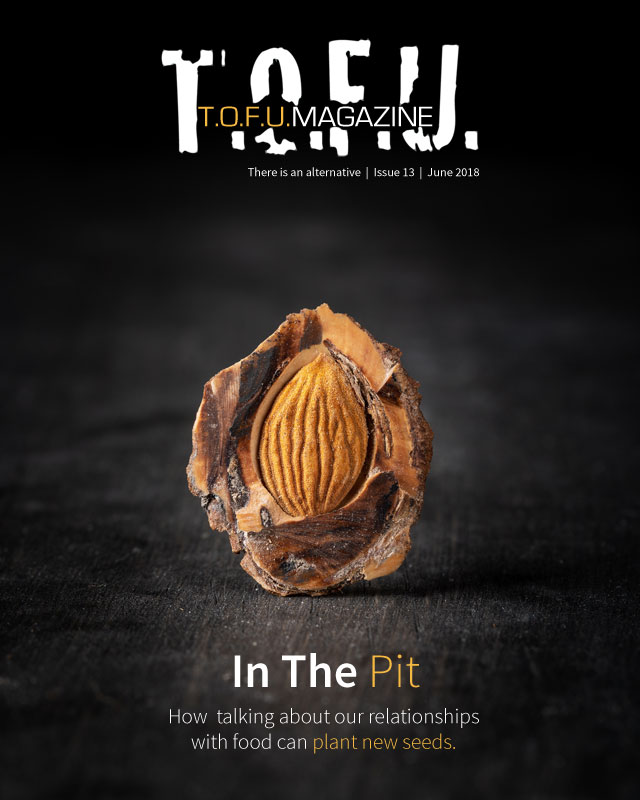
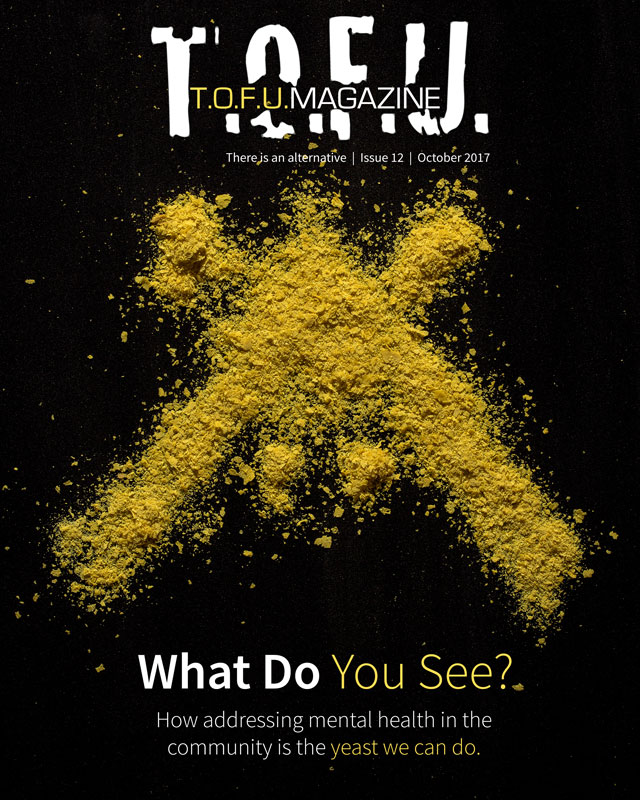
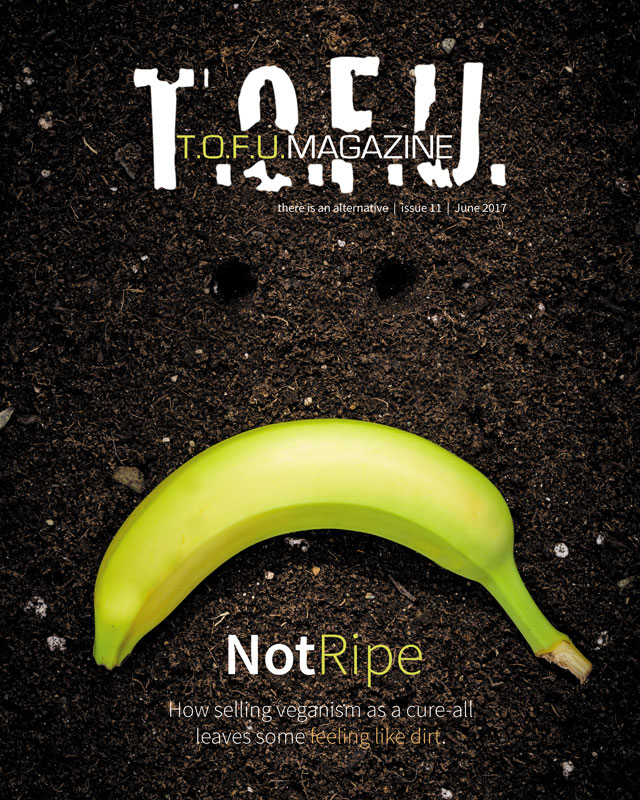
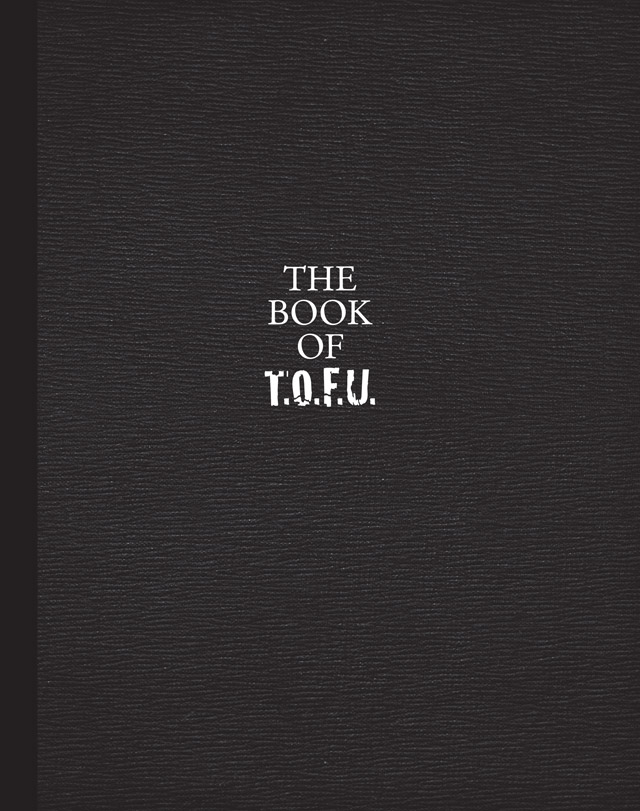
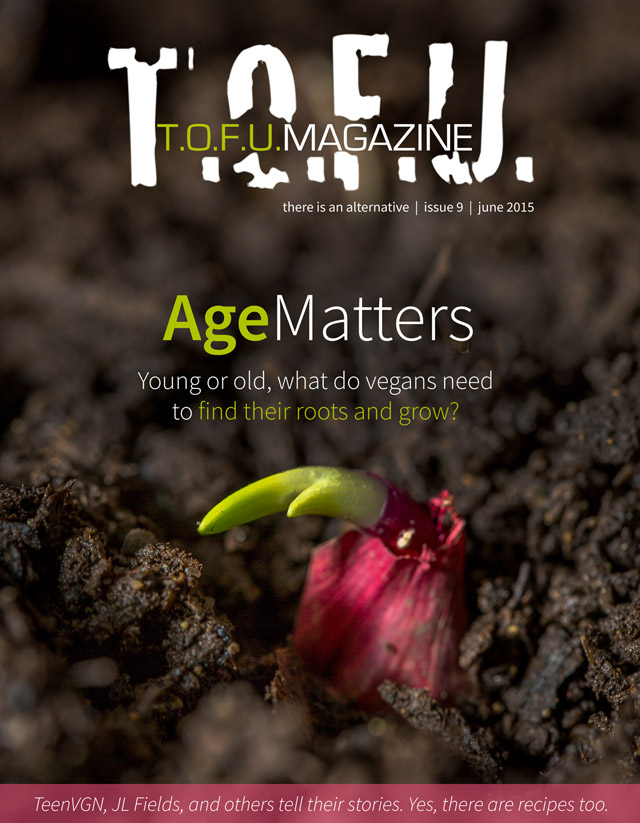
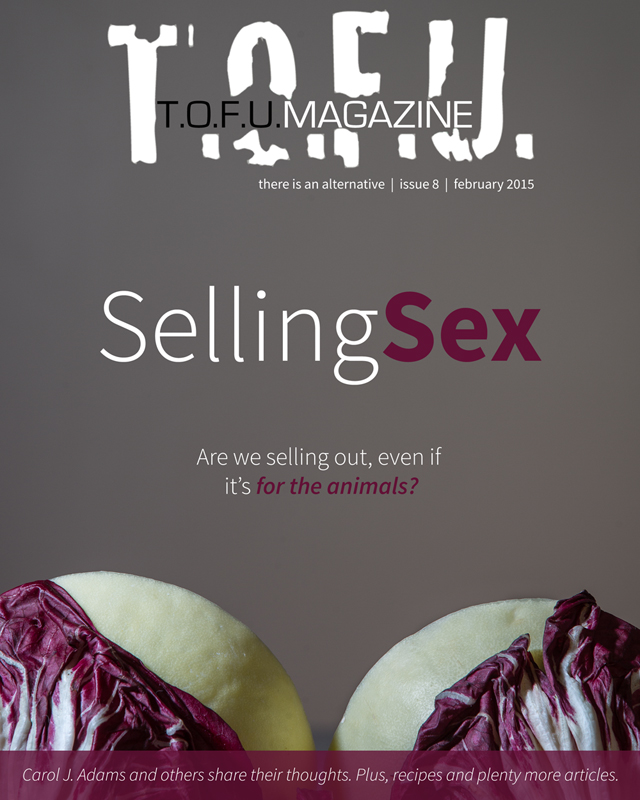
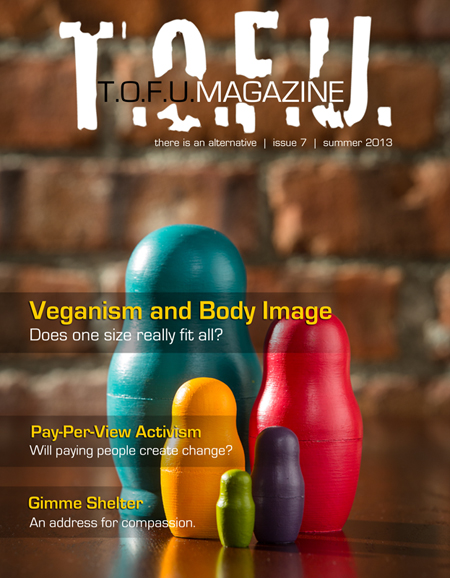
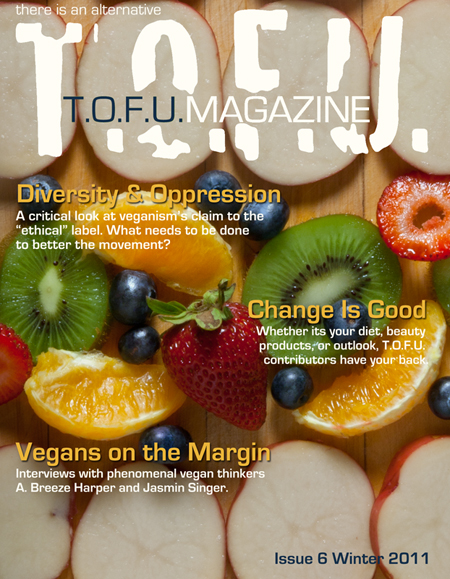
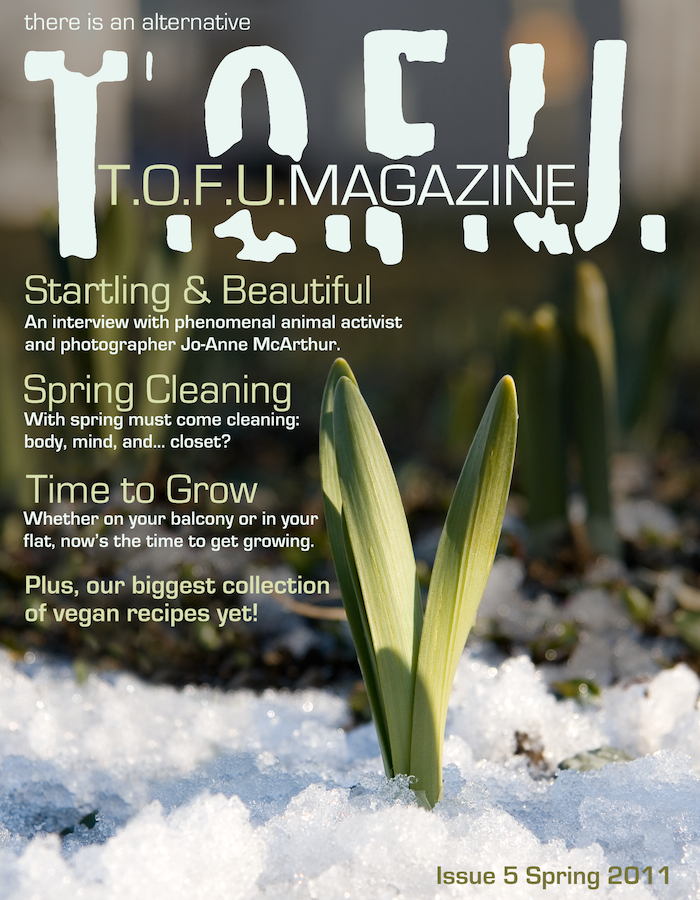
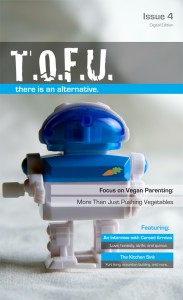
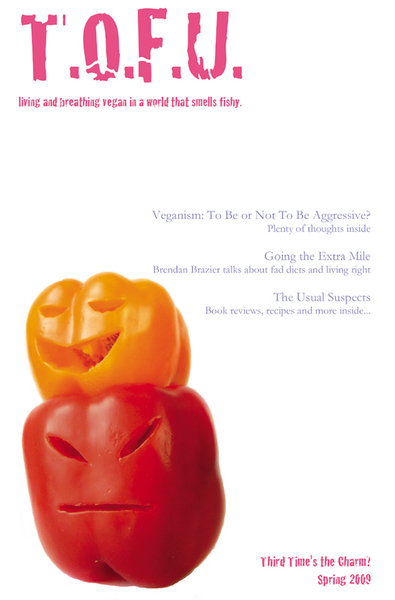
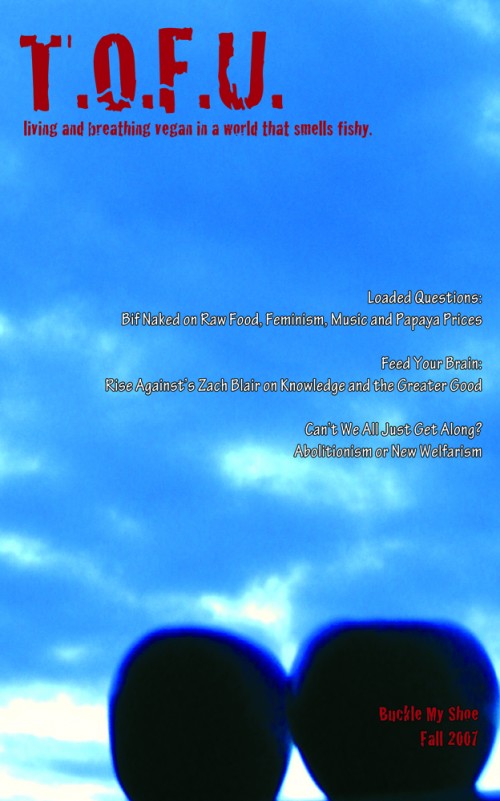
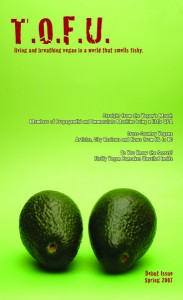
Pingback: Issue #11 | Meet the Vegan Illustrators | T.O.F.U. Magazine